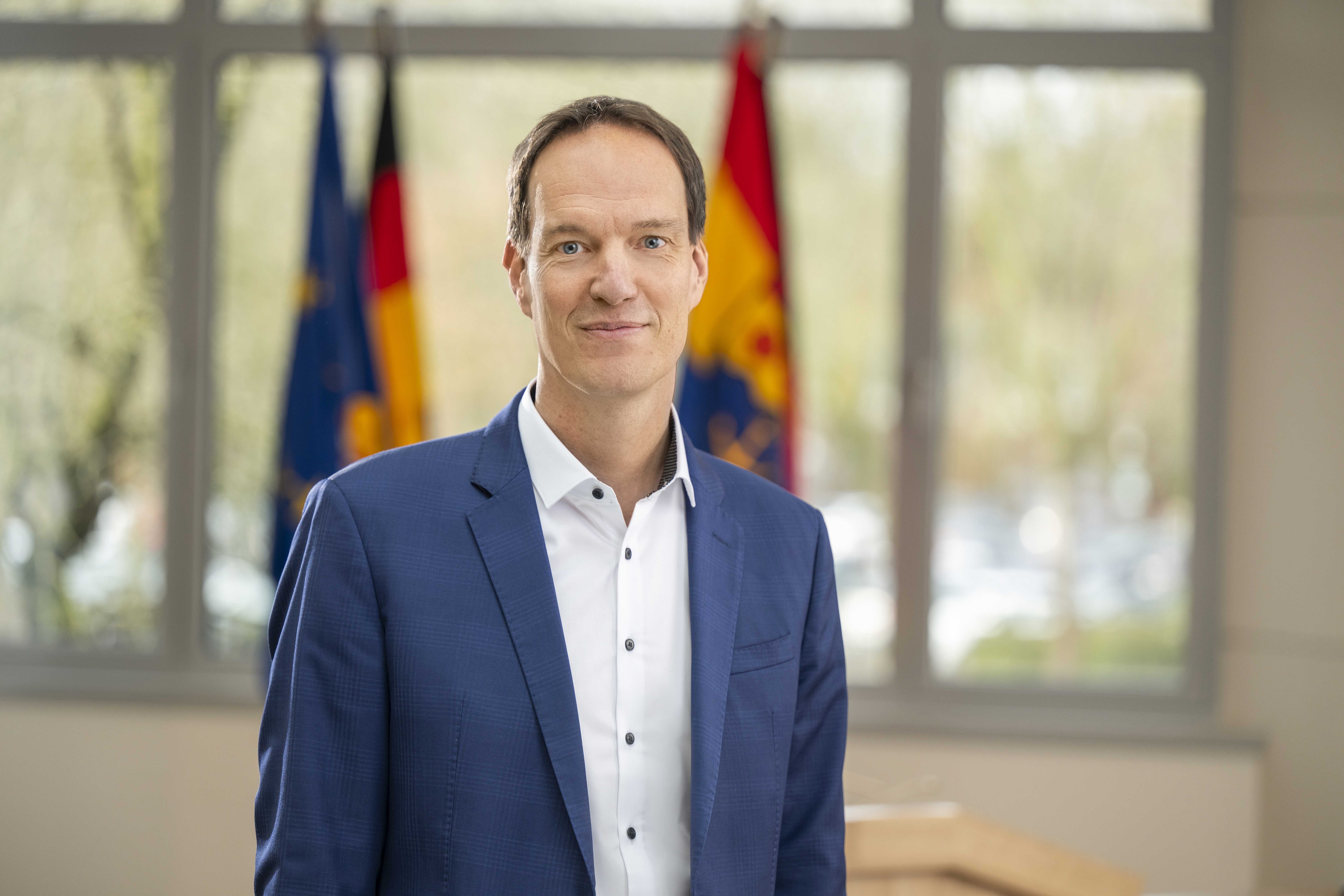District Emsland (DE) is one of the Lighthouses of the Green Team project. There, Dr. Michael Kiehl heads the department District Planning. Since 2020, with the Lower Saxony Climate Act, all districts are required to be involved in climate protection and adaptation. A great task, and one Kiehl knows Emsland cannot tackle alone. Thus, their participation in the Green Team project was born.
Written by Walter Pengemann
What motivated you to participate in this European project on climate adaptation?
"The District of Emsland previously participated in a Germany-wide model project (Umweltbundesamt) “Networking Municipalities”, which showed us how valuable structured exchange can be. As a large rural region, Emsland faces many climate-related challenges. We know we can’t tackle them alone. Cooperation — especially across borders with the Netherlands — is essential. Through past Interreg projects, we’ve already seen how fruitful that can be."
What specific climate challenges does your region face?
"One important example for Emsland is the topic of water quantity management. Through the Emslandplan 2.0 project, we have already developed extensive analyses and numerous recommendations for action. However, it is also clear that large-scale and cross-regional consultations is often necessary. That’s why we have been in dialogue with Dutch partners on this topic for some time."
Why is it important for you to work across departments when addressing climate adaptation?
"In my view, the networking enabled by this project — both at the European level and within the district administration through the Green Team — is a key factor. Many challenges caused by climate change simultaneously affect areas such as the environment, health, and civil protection. It is very valuable when the relevant stakeholders work together on joint solutions at an early stage.
We have identified that within the district administration, more than 50 tasks are directly related to climate adaptation. These tasks affect very different organisational units. Climate adaptation is clearly a cross-cutting issue that can only be addressed in a meaningful way through collaboration. This requires coordination and effective networking. That is why we have started developing a climate adaptation strategy for the district of Emsland."
So, are those departments now working together due to Green Team?
"They are! Our practical guide “Climate protection and climate adaptation in urban land-use planning” is a very good example. In close collaboration — both internally and with our municipalities — we developed a guide that reflects the municipal perspective and creates real added value for everyone. it’s now a recognized Climate Protection Lighthouse project in Lower Saxony. The jury specifically praised how we empower others to act. I am particularly pleased when, as in this case, many stakeholders succeed in pulling together."

Dr Michael Kiehl
Why, do you feel, is it critical to involve political leaders and upper management in a project like this?
"From my perspective, this is self-evident for a task of such great societal importance. We can only solve the challenges of climate change together and across all levels. That's why I, as the department head responsible for environmental issues, am directly involved in the Green Team project. At the same time, it was important for us to report thoroughly on the content and goals of this project in our political committees. We did this early on with support from TU Dortmund as you can read here. We will continue to follow the project’s progress closely."
Have you noticed a shift in political or executive commitment to climate adaptation since your participation in this project began?
"The District of Emsland has already been explicitly addressing the topic of climate adaptation for some time. For example, our first climate protection conference was held in 2010, followed by the development of an energy and climate protection strategy in 2012. For me, it is important for me to maintain this course consistently. In the coming weeks, we will be proposing a district funding guideline so that the municipalities of Emsland can place even more importance to the topic of climate adaptation."
What are your hopes for the long-term impact of this project on your region’s climate resilience?
"I am convinced that a broad set of measures and actions is necessary to meet the challenges of climate change and achieve a high level of climate resilience in Emsland. In my view, the particular value of this project lies in strengthening the personnel structures involved and building long-term networks between all the participating organisations."
Would you recommend other regional governments to join similar European collaboration projects?
"If I speak for Lower Saxony, all administrative districts will soon be required to develop a climate adaptation strategy. I can only recommend that each district brings this legal obligation to life through practical and applied projects like Green Team."
